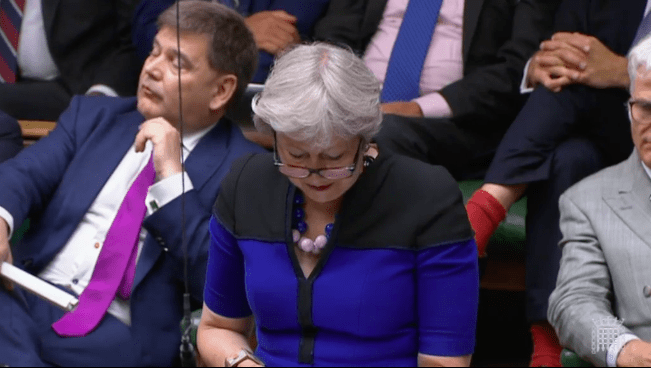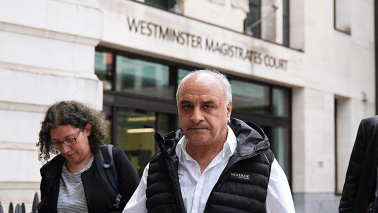Boris Johnson has had a very uncomfortable start to today’s Commons debate on Afghanistan. Not only did he have a series of critical interventions from his own backbenchers when he was speaking, he then had to sit through an unusually powerful speech from Sir Keir Starmer. The Leader of the Opposition criticised the PM’s ‘careless leadership’, slammed the Foreign Secretary’s ‘dereliction of duty’ in remaining on holiday as the situation worsened, and pointed to an ‘unforgivable’ lack of planning over the 18 months following Donald Trump’s deal with the Taliban.
This was swiftly followed by an equally furious Theresa May. She reminded her successor that he and Joe Biden had indicated in July of this year that they did not think the Taliban was really capable of returning to power, and argued that ‘this has been a major setback for British foreign policy’. ‘Where is “Global Britain” on the streets of Kabul?’ she asked.
Starmer argued that it would be a betrayal of the sacrifices made if ‘preventing al-Qaeda training camps is now the limit of our ambition’.
The combined force of May and Starmer’s contributions was to suggest that the British government had been caught on the hop by what had happened – and that this was avoidable had there been sufficient planning. Neither were contradicted by Tory backbenchers, who had not turned up to support the government, but to question what on earth it was up to.
Both were very careful to pay tribute to the sacrifice of British and Afghan troops, and to argue that their efforts had not been in vain. Starmer, whose party was in government when the intervention in Afghanistan took place, devoted the opening lines of his speech to arguing that the action had changed the country. He said that ‘Afghans have allowed themselves to dream of a better future’.
But as well as being deeply cutting on the British government’s preparedness, Starmer also argued that it would be a betrayal of the sacrifices made if ‘preventing al-Qaeda training camps is now the limit of our ambition’.
Johnson has said that the international community should only recognise the Taliban in government if it abides by human rights and other assurances it has given in press briefings. But the bar for action against the regime does indeed seem to be preventing Afghanistan from becoming an exporter of terrorism again.
Coupled with the low numbers of refugees that Britain has said it will resettle here this year, no wonder the House of Commons – full once again after more than a year of Covid restrictions – feels so angry.







Comments